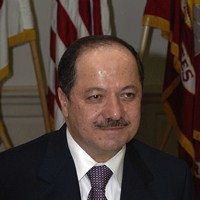With insurgents from the Islamic State in Iraq and Syria (ISIS) taking the country’s second biggest city, Mosul, and advancing on the capital, Baghdad, Iraq finds itself in the worst political and military crisis since the height of the civil war in 2006-2007; the very survival of Iraq as a state is in doubt. Its political and military institutions are discredited beyond repair, and Prime Minister Nouri al-Maliki’s divisive, sectarian leadership is widely blamed for fueling the unrest that feeds the ISIS advance through the Sunni Arab-dominated provinces of central Iraq.
Little surprise, then, that many observers in the West, who feel no desire to be dragged into the Iraqi quagmire again, turn to the only power in Iraq politically stable and militarily capable enough to hold ISIS at bay: the Kurdish autonomous region and its peshmerga forces. Maliki, for the sake of his own political survival, desperately wants to avoid giving Iraqi Kurdistan more power and influence, and is asking for U.S. airstrikes instead. Maliki knows that any Kurdish help would come at a heavy price, namely the central government accepting the territorial gains the Kurds have made over the past week as well as the Kurdistan Regional Government’s (KRG) right to both award oil and gas contracts to international bidders and sell its oil and gas on the world market independently of Baghdad.
A recent Foreign Affairs article advocates that the United States exert pressure on the Iraqi government to pay this price in exchange for Iraqi Kurds coming to the rescue. U.S. Secretary of State John Kerry was in Baghdad yesterday and Irbil—the capital of the KRG—today, presumably seeking to broker such a deal. Some U.S. commentators have gone so far as to prescribe Kurdish independence as the only means to save Iraq.

